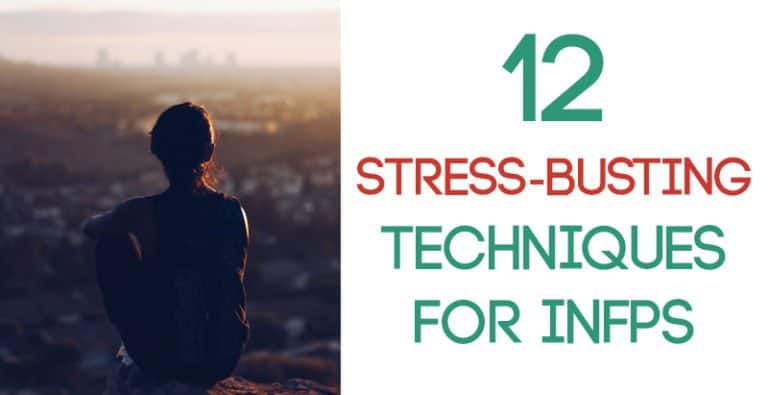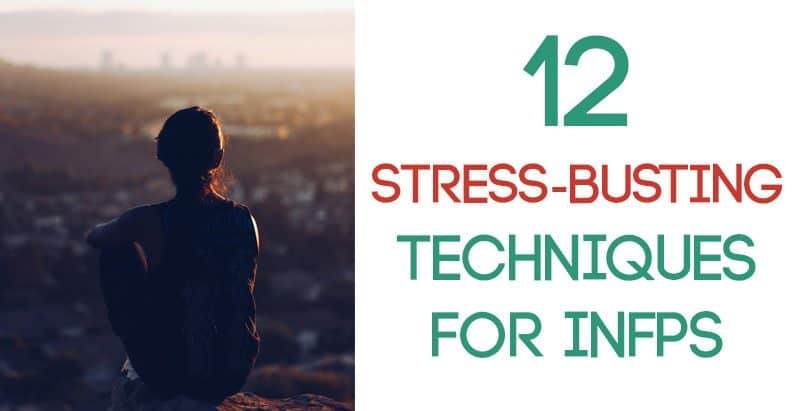The Survival Skills of Every Myers-Briggs® Personality Type
Have you ever wondered what would happen if you were stranded on a desert island? Does your mind ever wander to fantasies about the apocalypse or a dystopia that would call on you to harness your natural talents? What would those talents be? Today we’re going to take a look at some of the unique strengths each personality type would bring to a survival situation, particularly in a group setting where a variety of skills would be needed. Let’s get started!
Not sure what your personality type is? Take our new personality questionnaire!

The Survival Skills of each Myers-Briggs® Personality Type
ENFPs and ENTPs
These are the people you want around to keep ideas flowing, to keep options generated, to ensure that everyone’s enthusiasm is up. When traditional avenues have failed and chaos is rampant, ENPs have a knack for seeing new approaches and creative ideas. They enjoy a challenge, a change, and they don’t shy away from risks. Making a mistake isn’t something that will cause them to spiral into depression or rage because experimentation and innovation get them excited. ENPs are often seen as quick of mind because they assimilate and connect new information extremely rapidly. They keep their eyes on the big picture and see how everything is connected and how one small change could impact the health and readiness of an entire group.
ENTPs are gifted at problem-solving and weighing multiple pros and cons in the midst of chaos. They can detach from their surroundings and look at a problem logically without getting flustered or emotionally overwhelmed. Survival scenarios are naturally chaotic and confusing – the creative energy and logic these types bring to the table is vital.
ENFPs are gifted at making sure that the values of individuals are prioritized. They are highly empathetic and people-oriented with a gift for noticing outliers and underdogs. They are skilled at teaching people new ways to do things. Their ability to hold a band of tired, anxious survivors together will be paramount to the success and endurance of all.
Potential Skills:
- Finding unusual ways objects could be used.
- Keeping up morale.
- Seeing the future implications of current actions.
- Finding unusual solutions and strategies.
- Global perception.
- Brainstorming new options and alternatives.
- Multi-tasking.
INFJs and INTJs
These types have a unique ability to see the shape of possible futures. In a dire situation, they will be stepping away from the action to analyze the long-term implications of everything that’s happening around them. They will take into account the importance of timing and strategy and will focus on getting everything in place for a careful, precise approach to survival. These are the individuals that you need to chart the course and map out how a long-term goal is going to be achieved. What strategies will keep everyone alive for the next 20-30 years? What impact will today’s choices mean in the future? These are the individuals that you’ll want to be analyzing those big questions.
INTJs conceive new ways of thinking and doing things that will give the group a strategic advantage. Once they’ve developed their strategy, they know exactly which steps to put into place to achieve a goal. They are no-nonsense, direct, highly logical, and focused on maximizing efficiency.
INFJs see potential in people and help guide them to that potential. They can stay focused on the desired outcome, working hard regardless of the effort. They get strong impressions about how things will play out in the future, and how people will be impacted. They also are gifted in providing emotional support and personal counseling.
Potential Skills
- Foreseeing long-term implications and possibilities.
- Detecting hidden motives or lack of authenticity in others.
- Developing strategies for survival.
- Keeping people focused on a future goal rather than current troubles.
- Staying on course and focused in one direction.
Read This Next: 7 Things That INFJs Experience as Children
3 Weird and Wonderful Secrets About the INTJ
ESFPs and ESTPs
Energetic and extremely resourceful, these are the types most likely to be aware of what’s happening around them. ESPs are the two personality types most tuned into the present moment, most attentive to outside details, and most ready for action and surprise. In fact, neuroscience expert Dario Nardi has said of ESTPs and ESFPs that they have a “tennis hop” brain pattern. This means that all regions of the neocortex are low amplitude and out of synch. Just like a tennis player who is hopping from foot-to-foot waiting for the ball, the ESP brain is active and ready for any kind of incoming, unexpected event. These types can get a surprising amount done in a very short amount of time. They also are impressively adaptable and resilient.
ESTPs are skilled in the art of tactics. They can execute and make things happen quickly, using resources that are available but perhaps unnoticed by others. They can act rapidly to circumvent obstacles, and they are usually physically in tune with their environment and potential threats.
ESFPs are friendly, motivational, and skilled at facilitating group processes. They often handle risk or change with resilience and tend to know what everyone in the team wants. They can make sure the group is operating at an ethical level and will motivate people to do their best work.
Potential Skills
- Hunting/warfare.
- Gathering resources.
- Finding creative ways to use resources already at disposal.
- Accurate, detailed observation of what’s happening in the present moment.
- Ability to see all sides of an issue.
- Hands-on work and combat.
- Teaching by example.
- Improving morale – garnering excitement.
ISFJs and ISTJs
These are the people who create a sense of structure and stability within any group. Sure, everything around them may be in chaos, but these types will find some way to create a sense of security. These are the ones who will be gathering resources ahead of time, crafting weapons, locks, and enclosures. They are also the types most likely to tell whether a plant is poisonous or not. In fact, ISJs are the types with the most natural awareness of flavor, inner-body sensation, and physical comfort or illness. These types pride themselves on staying calm and grounded, which is something that every group needs in a survival scenario. They are also very detail-oriented, careful, and thorough in whatever they do.
ISTJs have a skill for laying out detailed plans with the logistics clearly outlined so things will turn out right. They are cautious and focused, regularly checking to make sure any potential negative effects are prepared for. They are skilled at inspecting plans, monitoring progress, and letting others know that everything will be taken care of.
ISFJs support and protect individuals in a group. They notice and remember what people need and are willing to go the extra mile to ensure the daily needs of the group are met. They are gifted at creating stability and harmony, bringing together diverse people to work towards one goal. Their empathy and generous nature make them comforting to many.
Potential Skills:
- Gathering information needed for survival.
- Excellent memory for important details.
- Creating stability and consistency.
- Noticing things that are out of place.
- Creating security.
- Foreseeing potential obstacles.
- Creating structure.
- Crafting weaponry/gathering resources.
Read This Next: Here’s What it’s Like Inside the Mind of an ISFJ, ISTJ, ESFJ or ESTJ
ENTJs and ESTJs
These two personality types are excellent at taking charge of chaotic situations and breaking down complex tasks into sequential steps. ESTJs tend to be masters of logistics; seeing where to put people and how to use them to get goals achieved with maximum efficiency. ENTJs are strategic and mobilizing – seeing long-term goals and setting up systems to accomplish them. Both types are skilled at creating an effectively-operating unit, ensuring everyone is working productively and cohesively. ETJs would likely be the leaders in a group of survivors, creating the outlines, prioritizing projects, and crafting fair regulations and rules.
ESTJs are extremely pragmatic and grounded in reality. They would take care of the daily problems that needed solving, while also planning for long-term security and survival. These types don’t mind rolling up their sleeves and getting dirty for the sake of the group, whether that means hunting, doing medical work, or building shelters. Their no-nonsense mindset would be a comfort to a team of survivors.
ENTJs would be actively organizing the group to achieve long-term success and security. They’d be less concerned with day-to-day details that need managing and more concerned with strategically maneuvering the group towards long-term survival. They’d help people see beyond the present moment to a future where thriving is possible.
Potential Skills:
- Planning and logistics.
- Assembling rules and regulations.
- Ensuring equal treatment.
- Task organization and completion.
- Instilling confidence in survivors.
- Analyzing problems to find solutions.
- Creating contingency plans.
INTPs and ISTPs
Fairness and truth are guiding principles for these two personality types. They want to understand how the world works and they strive to discover logical relationships between ideas and objects. In a survival situation, they would be the ones thinking outside the box to come up with unconventional solutions. They would be the ones most likely to face the facts and deal with the situation as it currently is rather than creating optimistic fantasies that might waste time. They would bring clarity to the situation, being honest about the predicament everyone is in but also seeking ingenious solutions to problems that have never been encountered before.
INTPs merge theories and ideas into a unified whole and would look for options and alternatives outside the normal realm of practice. They are very creative and independent, so they may not rely on being in a group to survive unless they saw a logical reason for it. They would likely stay out of group politics, working autonomously to find inventive survival strategies.
ISTPs are quick to adapt and operate in the present moment. They are often gifted with the use of tools and weaponry and will likely be skilled hunters/builders. They enjoy a challenge, don’t mind taking risks, and able to stay in touch with their environment and what’s happening around them. They would be quick to notice and react to a threat, using their observational awareness and strong logic to come up with spur-of-the-moment solutions.
Potential Skills:
- Evaluating and organizing processes.
- Thinking outside the box.
- Detecting logical flaws in a plan or operation.
- Skill at creating effective systems.
- Problem-solving.
- Strategy.
- Tactics.
Read This Next: 3 Weird and Wonderful Secrets About the INTP
ESFJs and ENFJs
These personality types would be the “glue” holding a band of survivors together. They would be checking into everyone’s emotional and physical needs and ensuring that people were moving towards a unified goal. They would be keeping an eye on group values, making sure that ethics were being considered before decisions were made. They would empathize with individuals who were struggling, providing much needed moral support and encouragement. Keeping everything organized and diffusing interpersonal conflicts would help a band of survivors not to dissolve into chaos.
ESFJs are extremely pragmatic and resourceful. They would naturally tend to the physical needs of people in the group. They excel at organizing logistical details, creating plans and gathering resources so that morale can be maintained. They are also gifted at creating routine and consistency so that people feel like there is a sense of “home”. Hunting, gathering, crafting, growing, building – these are all things that ESFJs tend to be very good at.
ENFJs would have an eye for the potential in others. They are deeply in tune with the emotional needs of the people around them and would be able to sense who was a danger, who was a risk to themselves, and who could help hold the team together. They would be the social strategists of the group, organizing people so that conflict would be avoided and goals would be achieved. Their empathy and authenticity would draw many people to them, giving the team a sense of purpose and unity.
Potential Skills:
- Taking care of others.
- Organizing people into effective groups.
- Diplomatic relations.
- Morale assessment and improvement.
- Ethical awareness.
INFPs and ISFPs
These two personality types would be the ethical backbone of any survival group. They would make sure that people weren’t losing themselves in the struggle. They would work behind-the-scenes, safeguarding people’s beliefs and values, giving the group a sense of integration and purpose. They would provide emotional support and help people to maintain their humanity and individuality. If an authority figure was railroading over the emotional needs of others, IFPs are the ones who will likely stand up to defend them. They care about underdogs and misunderstood people and would look out for anyone on the outskirts of the group.
INFPs are creative and imaginative, with a gift for knowing when others are in internal distress. They are typically gentle and empathetic, accepting people who others might find odd or unusual. In a survival situation, they would ensure that there was respect for individual values and they would foster creativity and meaning into daily life so that people wouldn’t lose touch with what makes them human.
ISFPs are also creative, but also very in touch with what’s real. They are usually quick to respond to a crisis and tend to have excellent observational awareness. These are the types who will fight for the values of others and stand up against oppressors or bullies. They have excellent hands-on abilities as well. Hunting, crafting, and providing practical support would all be skills they could bring to the table.
Potential Skills:
- One-on-one support.
- Insight into the authenticity level of others.
- Ethical awareness.
- Advocacy for outliers and underdogs.
- Creative problem-solving.
- Integrating ideas and possibilities behind the scenes.
Read This Next: 10 Things You’ll Relate to if You’re an INFP
10 Things You’ll Relate to if You’re an ISFP
What Are Your Thoughts?
How well do you think you would handle a survival scenario? Do you have any insights or disagreements related to this article? Let us know in the comments!
Find out more about your personality type in our eBook, Discovering You: Unlocking the Power of Personality Type.
Subscribe to Our Newsletter

Want to discover more about personality type? Get the inside scoop with Susan Storm on all things typological, along with special subscriber freebies, and discounts on new eBooks and courses! Join our newsletter today!













Now we need to see the flip side, of how the types might poorly react. That would be interesting.
I enjoyed this article! Two topics that have always intrigued me. Survival and personality. I usually test as an ENFP , but identify strongly with INFP. Highly ethical, loyal, reliable “champion of the underdog”. I detest bullies. The ENFP in me enjoys people. In a survival situation. I would be miserable if I was the only person left. Definitely the person who would run into a burning building. Thank you for interesting article.
This is such a great article, Susan. The ITPs are spot-on! I always say my husband (ISTP) and best friend (INTP) will be master survivors in an apocalypse and I (INFP) would be left behind at the outpost collecting berries and listening to everyone’s problems ???? I’m glad to see that there’s some use for us, after all, even if it’s just to keep the peace.
I’m always late to these things, oh well XD I wanted to comment now that I am feeling better physically, I feel like pain has been a distraction for so long and it made it really hard for me to assess myself. I still don’t know what my Personality type is but I would imagine I am either an ESFP or ENFP, I say this because I am always trying to be alert for anything that could go wrong as in a home invader coming in (happened recently) or pondering how and what I’d do in case a bad earthquake hit. At the same time though I try to gain a sense of how the globe perceives thinfs and I try to understand the big picturr although I don’t usually have a plan if war broke out I’d find a way to avoid it at all costs but if I couldn’t I have no qualms of fighting and doing what I have to do to survive so I’m not sure exactly what I am in regards to my personally this was a very great article thank you Susan